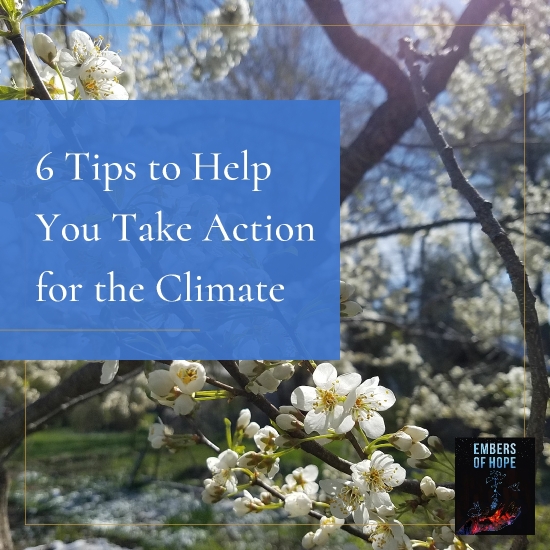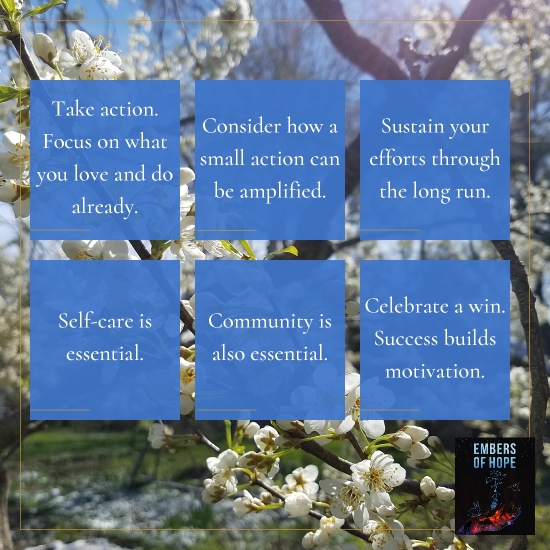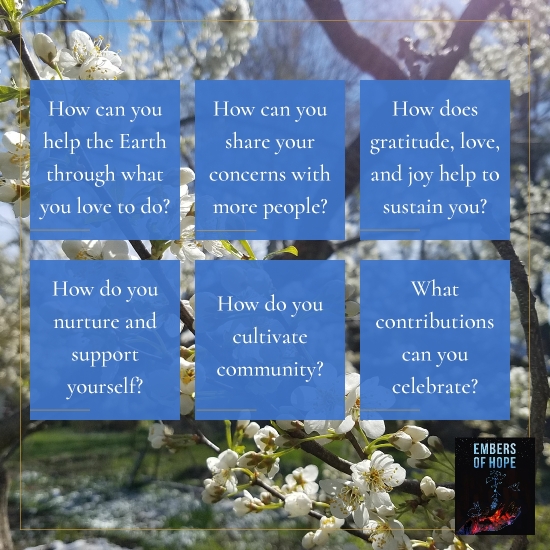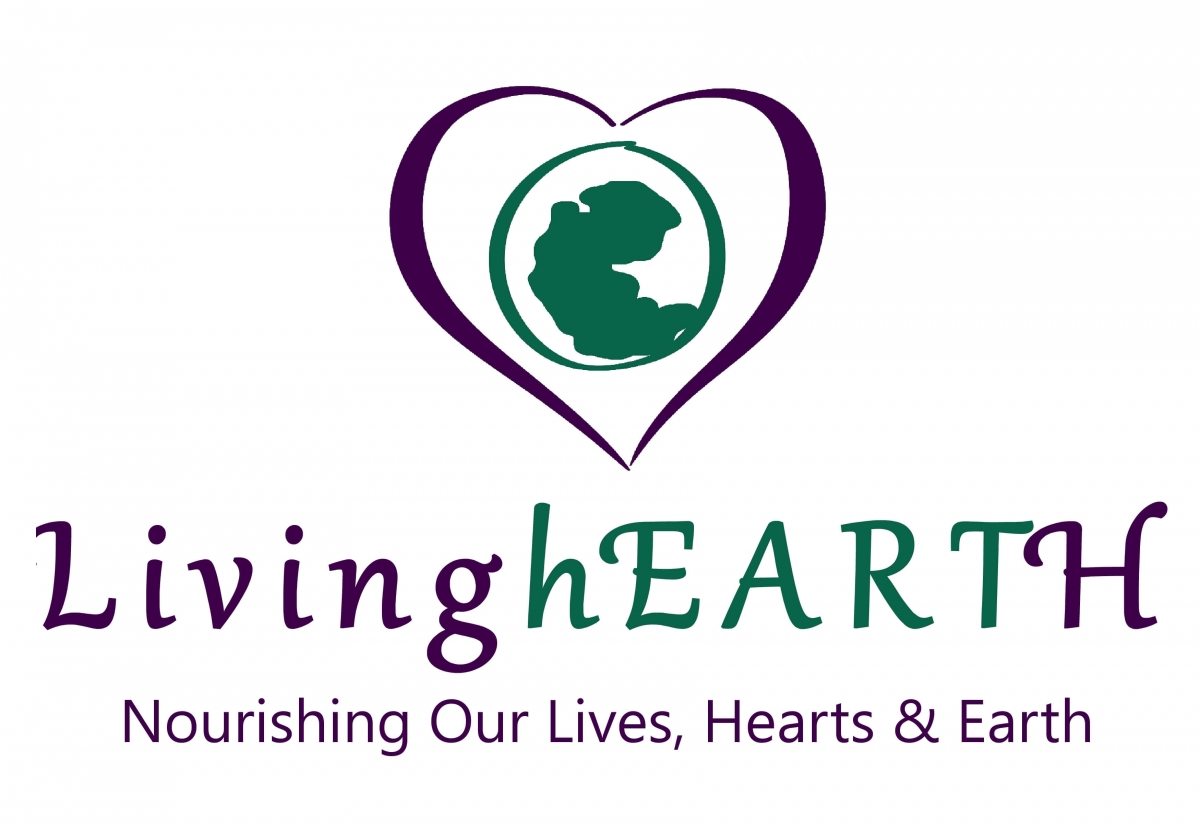 Copyright © 2023 by Bonita Eloise Ford
Copyright © 2023 by Bonita Eloise Ford
The good news: An increasing number of people are concerned about the climate1,2—and plenty of climate solutions already exist3.
Our conundrum: Climate breakdown impacts all of us (albeit in different ways) and shifting our current trajectory requires collective change. So what stops us?
Whether I'm talking with climate-concerned adults or youth, I find it interesting that their questions are similar: What can I do to help the climate? Do my actions even make a difference?
Our energy to engage with this crisis can get drained in various ways. We think the problem is too big. We don't know how to be effective. We feel overwhelmed, helpless, or hopeless. We're burning out physically, mentally, and/or emotionally.
As I've grappled with these questions and challenges myself, I've started having some moments of clarity. While the following are not radical ideas, these simple tips are meant to help us focus our precious energy and move through some of the blocks that hinder us.
1. We can all help by taking action. Focus on what you love to do and what you already do. If you're a teacher, teach your students about climate breakdown. If you're an artist, make art with an environmental message. If you're an accountant, volunteer to help with the finances for a local eco event. Some of us can donate to support environmental justice organisations. Many of us can participate in climate marches. And even if none of the above is accessible, most of us can still talk with others and share our concerns about the state of the planet. What are your passions? How can you adapt what you already do to more directly help the Earth?
 2. Consider how a small effort can be amplified. While small actions do add up, aim for the greatest impact possible with every action. In permaculture, one of our design principles is “the smallest change for the greatest effect.” The scale of our collective crisis urges us to scale up. Where do you have influence? Is there a leverage point that will allow you to be more effective? How can you reach more people? As a teacher, if you give your students a writing assignment about the climate crisis, instead of you being the only person to read their work, help them submit these as letters to the local newspaper. Similarly, if you make art that expresses your climate concerns, you could showcase your art (on social media or at a local event) with descriptions that explicitly convey your message. If you are helping with an eco event, think of ways to also raise funds to support a climate initiative (perhaps through a 50/50 draw or a silent auction). Seek ways to amplify your actions to reach a larger group of people. Remember, change takes both individual and collective action.
2. Consider how a small effort can be amplified. While small actions do add up, aim for the greatest impact possible with every action. In permaculture, one of our design principles is “the smallest change for the greatest effect.” The scale of our collective crisis urges us to scale up. Where do you have influence? Is there a leverage point that will allow you to be more effective? How can you reach more people? As a teacher, if you give your students a writing assignment about the climate crisis, instead of you being the only person to read their work, help them submit these as letters to the local newspaper. Similarly, if you make art that expresses your climate concerns, you could showcase your art (on social media or at a local event) with descriptions that explicitly convey your message. If you are helping with an eco event, think of ways to also raise funds to support a climate initiative (perhaps through a 50/50 draw or a silent auction). Seek ways to amplify your actions to reach a larger group of people. Remember, change takes both individual and collective action.
3. It is critical that we sustain ourselves and our own efforts through the long run. The changes required of us are more like a marathon than a sprint. How can you maintain the energy and motivation to continue this work through the years (instead of months or weeks)? How does connecting with a sense of gratitude, presence, love, joy, inspiration, or creativity help to sustain you? Taking care of ourselves, connecting with community, and building on our successes can provide support and sustenance.
4. Self-care is essential. Whether we are seasoned activists who are on the verge of burnout or we are burgeoning activists who are feeling overwhelmed from the start, responding to the climate crisis has real impacts on our bodies, minds, and hearts. Being gentle and compassionate with ourselves can help us get started and/or continue this important work. (Indeed, climate breakdown is hitting more vulnerable, less privileged communities first, and the impacts are experienced more heavily in those communities. Still, trauma or burnout can be debilitating for any of us and make us less able to help. Self-care, in whatever small or big ways accessible to us, supports us in helping our communities.) What do you do to take care of yourself regularly? What do you enjoy doing to nurture and support yourself?
5. Community is also essential. We need other people. Whether it's another activist to hear our struggles or a neighbour to help us through a local disaster, community offers mental/emotional support and physical assistance. For those of us who grew up in the dominant North American paradigm, we may hold individualistic ideals of “self-sufficiency” or “being the one to save the day.” However, in reality, we are living beings who are part of a living community. Trees in a forest, rather than existing in isolation, exchange information, services, and nutrients with other trees, animals, and the living soil around them. None of us are alone. How is your life enriched by others, be it friends, family, or even strangers? How do you cultivate community in your life?
 6. It is important to acknowledge and celebrate a “win.” Our success helps build confidence and motivation. When we can see success—even small ones—as a result of our efforts, it can give us the energy to keep working towards the greater goal of collective change. A win can be as simple as having a conversation with a coworker about the climate, sending a letter to a local government representative and newspaper, attending a climate march with a group of friends and their children, hosting an eco book club, launching a “free market” event in the park, or giving a climate workshop at a local school. Being grateful for our own efforts can help to prevent or balance discouragement, especially when the path seems all uphill. What small or big actions have you taken? What can you celebrate? Be grateful for the ways you already help.
6. It is important to acknowledge and celebrate a “win.” Our success helps build confidence and motivation. When we can see success—even small ones—as a result of our efforts, it can give us the energy to keep working towards the greater goal of collective change. A win can be as simple as having a conversation with a coworker about the climate, sending a letter to a local government representative and newspaper, attending a climate march with a group of friends and their children, hosting an eco book club, launching a “free market” event in the park, or giving a climate workshop at a local school. Being grateful for our own efforts can help to prevent or balance discouragement, especially when the path seems all uphill. What small or big actions have you taken? What can you celebrate? Be grateful for the ways you already help.
We have no more time to waste. For the next 10 years, let's do our utmost to take action for the climate, while finding ways to sustain and take care of ourselves. Let's find ways of contributing to our communities (ecological and human) while doing what we love. Let's amplify our efforts and build community relationships based on mutual support. And finally, let's celebrate the good things we've already done to support Mother Earth.
Taking better care of the life around me fills my life with meaning and richness. Regardless of the outcome, this is how I want to live—and this is how I can help.
Check out Bonita's article “Do more or do less? Responsibility for a world in crisis” and her book, “Embers of Hope: Embracing Life in an Age of Ecological Destruction and Climate Chaos.” www.embersofhopebook.com
References:
1. Hickman, Caroline. “Climate anxiety in children and young people and their beliefs about government responses to climate change: a global survey.” The Lancet: Planetary Health. December 1, 2021. https://www.thelancet.com/journals/lanplh/article/PIIS2542-5196(21)00278-3/fulltext
2. Leiserowitz, Anthony, Edward Maibach, Seth Rosenthal, John Kotcher, Jennifer Carman, Liz Neyens, Jennifer Marlon, Karine Lacroix, and Matthew Goldberg. “Dramatic increase in public beliefs and worries about climate change.” Yale Program on Climate Change Communication. September 27, 2021. https://climatecommunication.yale.edu/publications/dramatic-increase-in-...
3. Project Drawdown. “Solutions.” https://www.drawdown.org/solutions


Add new comment